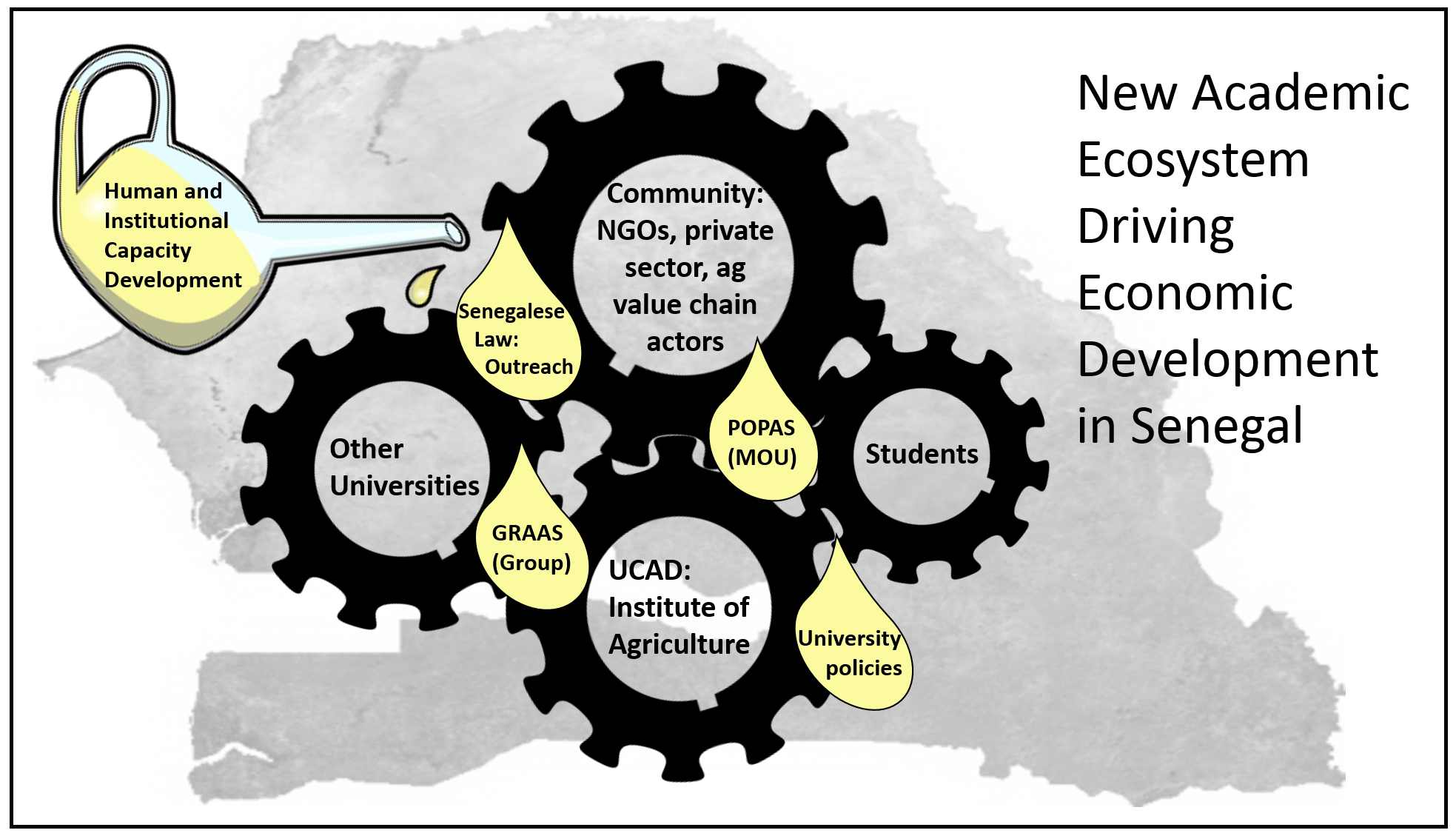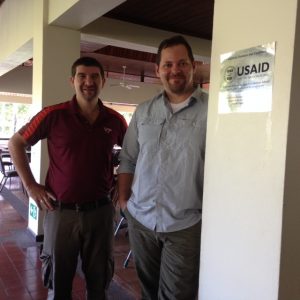Michael Parr, Michael Schultheis and Jim Simon
Edited by Keith Moore

Hands-on lab training in Senegal. Photo: ERA Senegal
Training teachers is more important than developing the curriculum, although neither is complete without the other. Good instruction involves both quality science and practical experience. Learning skills/capacity is weak among agricultural education and training (AET) students in developing countries, particularly in post-conflict situations. Agricultural professions are often a fallback educational and training choice for AET students who are not generally academically inclined. Stimulating these minds is challenging, and this requires motivated faculty who can bridge the gap between the new science and business of agriculture and real world applications. Rote learning will not suffice. Hands-on training exercises need to be led by those who understand the technology and the learning outcomes necessary to build the skills to operate those tools for profitable enterprises. Continue reading




 John Ignosh and Henry Quesada-Pineda, of Virginia Tech, visited EARTH University (Escuela de Agricultura de la Región Tropical Húmeda) in Costa Rica in February 2016. Their goal while there was to study how EARTH University’s strong agricultural program could be connected to regional TVET programs. Their study centers on the successful replication of EARTH’s TVET programs at the local level to ultimately produce more home-grown entrepreneurs.
John Ignosh and Henry Quesada-Pineda, of Virginia Tech, visited EARTH University (Escuela de Agricultura de la Región Tropical Húmeda) in Costa Rica in February 2016. Their goal while there was to study how EARTH University’s strong agricultural program could be connected to regional TVET programs. Their study centers on the successful replication of EARTH’s TVET programs at the local level to ultimately produce more home-grown entrepreneurs.